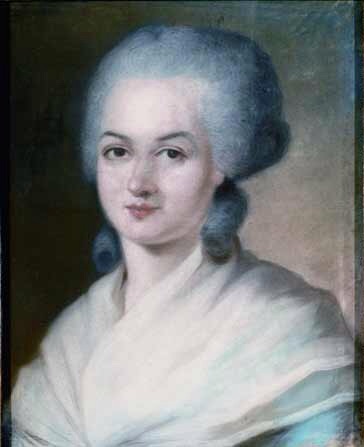Olympe de Gouges was born Marie Gouze on May 7, 1748 in Montauban, France, and died at the age of 45 on November 3, 1793 in Paris. She changed her name to Olympe de Gouges after she was widowed in 1766. Gouges started her career as a self-taught playwright in 1780, and her work became more popular after 1791 when restrictions on theatre and copyright was lifted (Nielsen, 2002, p. 2). Gouges was responsible for placing women on the stage during the Festival of Law – a festival in honour of the assassinated mayor – and promoted even militaristic presence on stage, an act at odds with the concept of liberal nation states (Nielsen, 2002, p.13). Gouges lived during the heart of the French Revolution (1789 – 1799), and throughout her life of political activism, fought for the rights of women and spoke out against slavery. She is considered by many to be the world’s first feminist primarily because of her most notable and most influential work, Declaration of the Rights of Women and the Female Citizen, in which she denounced the Constitution of 1791 for not including the suffrage of women (Scott, 1989, p. 8). Many of her plays showcased the issues of her society and economy. One of her plays, La Nécessité du Divorce, argued in favour of the right for women to divorce their husbands. Gouges was immediately enthralled and engaged in the ideas of the French Revolution, however when it became clear to her that women were not to be included in the wave of liberty and equality, she began to speak out against the men who had told her where she belonged, stating; “tell me, what gives you the sovereign power to oppress my sex?” (Hanley, 1997, p. 2). Alongside campaigning for women’s rights, Gouges was a great supporter of constitutional monarchy, believing that a separation of powers was the only way the female citizen would gain their much-deserved rights; although there was danger the king would continue to oppress all of his citizens, the democratic republic the revolutionists were fighting for was clearly going to leave women behind. Gouges expanded the ideas of the Revolution – one of the most impactful events in history, and unquestionably the key event in her life – to include women and to “bring about a second revolution within the Revolution” (Nielsen, 2002, p. 10); she encouraged women to go out, to be socially active, to be engaged in the Republic they were most certainly a part of. Gouges argued that women who became isolated in their private life caused more of a threat than the woman who was free to walk about. Jean-Jacques Rousseau had a strong influence on Gouges life, as she is considered part of a generation of French women who were inspired by his way of thought and self-education. (Nielsen, 2002, p. 9). Gouges wrote a few plays that featured Rousseau, Les Rêveries de Jean- Jacques, et la mort de Rousseau and Mirabeau aux Champs-Elysees Rousseau a Ermenonville. She takes Rousseau’s concepts of the active vs the passive citizen to argue her stance in favour of the female citizen engaged in public life (Nielson, 2002, p. 13). Gouges, because of her strong stand in favour of women’s rights and sympathy for the idea of a constitutional monarchy, ultimately found herself out of favour with the major faction of the revolutionaries. She was executed by guillotine in 1793 (Hanley, 1997, p. 26). Olympe de Gouges was a courageous and strong woman, one of the few voices for women during one of the darkest periods in French history.
Sydney Head
Works Cited
Hanley, Sarah. “Social Sites of Political Practice in France: Lawsuits, Civil Rights, and the Separation of Powers in Domestic and State Government, 1500-1800.” The American Historical Review, vol. 102, no. 1, 1997, pp. 27–52. JSTOR, http://www.jstor.org/stable/2171265
Nielsen, Wendy C. “Staging Rousseau’s Republic: French Revolutionary Festivals and Olympe De Gouges.” The Eighteenth Century, vol. 43, no. 3, 2002, pp. 268–285. JSTOR, JSTOR, http://www.jstor.org/stable/41467908.
Scott, Joan Wallach. “French Feminists and the Rights of ‘Man’: Olympe De Gouges’s Declarations.” History Workshop, no. 28, 1989, pp. 1–21. JSTOR, JSTOR, http://www.jstor.org/stable/4288921.
Other Relevant Readings
Gouges, Olympe de. Declaration of the Rights of Woman and of the Female Citizen. 1791.
